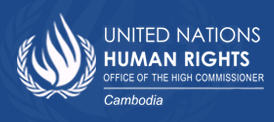
| Cambodia and the Convention on the Elimination of Racial Discrimination
This page provides information relating to the forthcoming consideration by the Committee on Elimination of Racial Discrimination of Cambodia's record on implementing the International Convention on the Elimination of Racial Discrimination. What is the Convention on the Elimination of Racial Discrimination? All human rights should be enjoyed by all human beings equally without distinction. This is why all human rights treaties include the principle of equality and non-discrimination in their provisions – to ensure that the rights set out in each treaty can be enjoyed by everyone, regardless of their race or ethnic origin, or indeed their sex, religion, political opinions or social or other status. ICERD complements these human rights treaties by addressing particular issues related to racial discrimination which prevent people of certain races or ethnic groups from enjoying their rights on the same basis as others. It is specifically designed to combat discrimination as a phenomenon rather than create new rights. In this regard, it is similar to the CEDAW which combats discrimination against women. What does the Convention mean for Cambodia? The Convention defines racial discrimination as “any distinction, exclusion, restriction or preference based on race, colour, descent, or national or ethnic origin which has the purpose or effect of nullifying or impairing the recognition, enjoyment or exercise, on an equal footing, of human rights and fundamental freedoms...”. In the Cambodian context, this means that the Government needs to ensure that all minority groups in Cambodia are able to enjoy human rights on the same basis as the Khmer majority. These minority groups include Cambodia’s indigenous peoples, the Khmer Krom minority originally from southern Viet Nam, the Vietnamese and Chinese communities in Cambodia, the Cham Muslim community, the African community in Phnom Penh, and any non-Cambodian national living or working in Cambodia. What is the Committee on the Elimination of Racial Discrimination? The Committee meets in Geneva and normally holds two sessions per year. The Committee also publishes its interpretation of the provisions of the Convention, known as general comments. The Office of the United Nations High Commissioner for Human Rights (OHCHR) acts as the secretariat for the Committee and also provides technical assistance to States to engage with the reporting process. For more information about the work of the Committee on Elimination of Racial Discrimination in English, click here. What is treaty reporting? |
|
||
|
|||